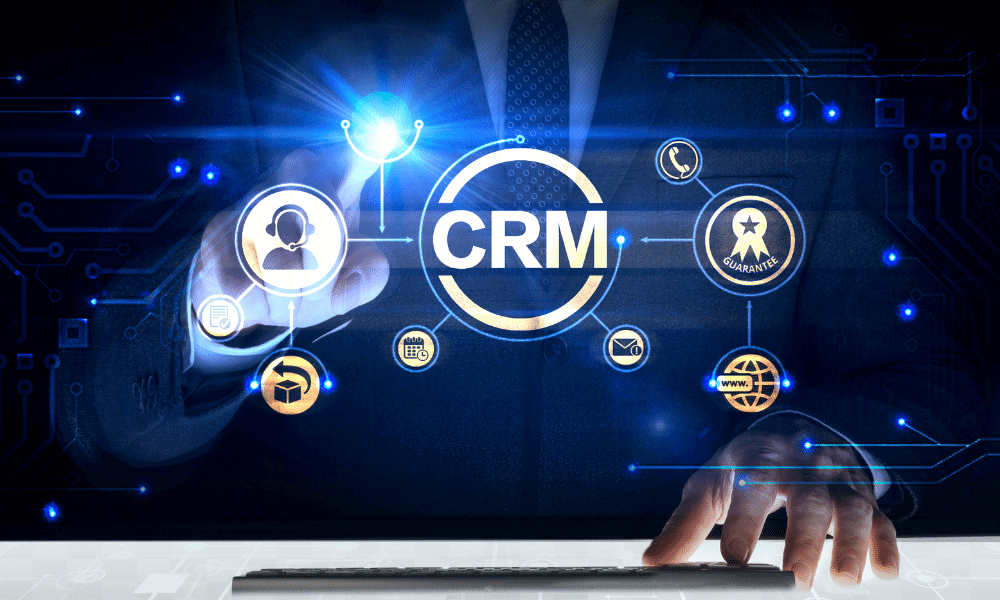In the past decade, CRM has become an integral part of businesses. Numerous industries, including construction, retail, hotels, banking, real estate, and many others, have started utilizing CRM solutions to reach the right people, follow work structure, and maintain long-lasting relationships.
Today, businesses no longer work merely on the barter system. Instead, companies believe in reaching out to customers, inquire about their preferences, and tailor-made it for them.
The process of selecting the best CRM software is quite intimidating. But, all the efforts feel worth-while when you see positive results of it in your flourishing business.
Here are a few fundamental aspects that you must consider while selecting a CRM system for your business:
1. Determine Your Objectives and Goals
The first step is to evaluate your objectives and goals for your business and projects. It is crucial to align internal and external business objectives and roles.
Once you have acquired clarity on this, the next move is to determine your expectations from the CRM system.
Do you want the system to rearrange the entire business process or only a few departments?
Should it help you reach customers with bulk emails or customized emails?
Do you need a solution that’s in between the two?
Answering these questions will help you create a base and clarity to find the right solution.
2. Communicate with Your Team
While searching for an ideal CRM solution, make sure that you discuss it with your team members. They are likely to use the system, and talking to them can help you select.
You will have a clear vision of the processes and features that you want in the system. They can also recommend the type of database and data management system required for the firm.
These insights can help you to determine the level of resources required to adopt and train your team with the new system. Remember, your team will make productive use of a system which is easy-to-operate.
3. The Scope of Integration
A key concern for most organizations is how well the CRM software will work with the current system. Business shopping is not an easy task as there are multiple resources involved, and some implementations are irreplaceable.
Your firm needs a CRM software that can work in-sync with other businesses and applications. That’s why most companies prefer a system that is easy to integrate with their existing technology, marketing, management, and sales solutions.
Some enterprises implement third-party integration through APIs to connect all their systems. Usually, this is done to ensure improved data and internal management.
4. Prepare a Concise List of Features
The next move is to analyze the critical features and functionalities that you need in your CRM software. To begin with, list all options that you thought about during your research.
Strike-off options that can be easily managed manually. Highlight features and functionalities that are important, and you cannot compromise on. You are likely to find an array of different CRM systems with diverse functionalities and features.
Regardless of whether you opt for a custom-built or predesigned system, this list can help you choose the right CRM for your business. Remember, there is no point in having robust but useless features in your system.
5. A Custom-Built Solution
Numerous enterprises prefer building a tailor-made CRM solution since it’s a lucrative choice. A few of them regret it, while others reap benefits. They mainly regret the cost involved and when it comes to migrating to another CRM system.
Switching from your custom-built CRM to a new CRM becomes one of the most significant pain points. You start evaluating the number of resources invested during the making process.
This is a common scenario when businesses are upgrading to a Cloud CRM solution. Experts suggest that if you don’t have sufficient resources, then a predesigned CRM system with your desired features is the best pick.
Several good, reliable, and feature-rich CRM systems facilitate add-on integration options. You can select this option as it allows you to integrate systems and other business applications.
6. Mobile-Friendly Solution
There is an increase in the trend of bringing your device. Mobile CRM offers you the luxury to run your business process from your phone.
With a large customer base residing in different parts of the world, there is a constant need to stay updated and active. Mobile CRM can provide you live updates about customers’ activities.
Your team can trace customer background, pipeline activities, and sales collateral from anywhere and at any time with mobile CRM.
A mobile-friendly CRM gives your team the liberty to respond to customer needs, generate leads, and manage existing customers swiftly.
See Also:
Final Words
It may sound quite overwhelming, but a comprehensive evaluation helps to select a good and productive CRM system that brings you increased ROI. Next, you should always go for the GDPR-ready CRM to manage your workflow more effectively to increase productivity.





















